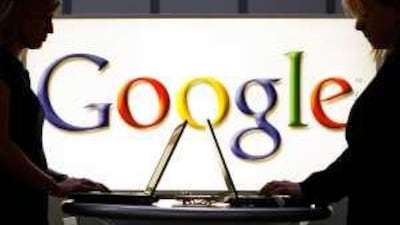What Silicon Valley needs is a little Sun Tzu. One teaching of the great Chinese military thinker was that a general should always attack the enemy at his weakest point, avoiding the costs of a head-on collision. It seems that instead of living by this maxim of minimal damage, the generals at Microsoft and Google are living by the logic of the great corporate warrior of the modern age, Rupert Murdoch: if you want to hurt somebody, burn down their house.
"Hit them where they live" was the advice the media tycoon once gave to a top executive at The New York Times who was contemplating how to compete with The Wall Street Journal. Instead of competing with the Journal's weekend lifestyle supplement, Mr Murdoch said the Times should go for the throat, focusing its efforts on business and finance news. That was back in 2002, before Mr Murdoch's News Corporation took ownership of the newspaper. Since the 2007 acquisition, the company has worked tirelessly to strengthen the Journal's coverage of politics and foreign news, his competitor's two greatest strengths.
A similar strategy of corporate arson is now being played out by Google and Microsoft, the two most important companies in the technology world. Google rose to greatness on the back of its world-beating search engine and the huge online advertising revenues it generates. Microsoft practically invented the market for computer operating systems and office productivity software, and both remain among history's greatest cash cows.
It is positively Murdochian then, that Google should seek to build an operating system, based on its Chrome web browser, at the same time that Microsoft pushes its new Bing search engine. Each is trying to burn down the other's house, and the result is not necessarily good news for the rest of us. Despite its reputation as an engineering powerhouse run by benevolent eggheads who can do no evil, Google is actually not very good at making decent products that are not search engines. Its best non-search offerings - Blogger and YouTube - were acquired from outside, and its only real home-grown success story is Gmail, easily the web's best mail service.
Its policy of encouraging engineers to spend 20 per cent of their time working on new ideas seems to be successful, mainly at producing poorly executed gimmicks that feel like the side projects they are. Consider Knol, a failed attempt at making a better Wikipedia, or Google video, a useless YouTube clone that has being quietly shuttered. Other new releases seem more promising. Chrome looks to be an industrial strength web browser designed for the modern era of internet applications, and the Android mobile phone operating system has quickly displaced Microsoft's Windows Mobile and Nokia's Symbian as the most exciting mobile system not made by Apple or Research in Motion (RIM).
But its move into the operating system market seems to be a clear attempt to stay on the attack against Microsoft, which only recently launched its high-profile new search engine. Building a free, open-source operating system that capitalises on the new realities of an everything online world is a truly great idea. It is just a pity it is being done as a strategic punch to the throat by a company known for poor execution.
And when it comes to poor execution, it would be hard to trump the Microsoft of recent years, whose Windows Vista operating system will be remembered as one of the great failures in software history. The mediocre Zune music player, Microsoft's me-too attempt at an iPod, was also less than impressive. On the internet, Microsoft's track record is also questionable. Its MSN web portal is not bad but not good, and its star asset, Hotmail, was acquired from outside and has been managed with competence, but not vision. The technical superiority of Google's Gmail has blown it out of the water.
This week, the company said it would launch a free, web-based version of its Office software, a US$10 billion (Dh36.73bn) revenue raiser for which the company charges hundreds of dollars a copy. Google and others have been offering internet-based notepad, calendar and spreadsheet programs free for some time. Now Microsoft will do the same. This, and Microsoft's renewed push into search, should send shivers down the spines of consumers. There was a time when the company could bully almost anybody out of any computer market it wanted to occupy, simply by bundling its own competing product with its near-monopoly operating system. The rise of products such as Internet Explorer, Windows Messenger and Microsoft Office was directly connected to this anti-competitive streak.
But regulators in Europe and the US grew tired of this behaviour, and after years of fines and regulatory harassment it has learnt to tread gently when it comes to taking advantage of its dominant operating system. Now, with Google proudly announcing an operating system not just bundled with a browser, but built entirely on a browser, Microsoft's good behaviour may be coming to an end. Google has learnt to leverage its dominance of the search market to grow other products such as Gmail and Google News, and regulators are yet to raise their voices.
As Google proudly pushes an integrated "platform" of e-mail, mobile handsets and online advertising - all driven and funded, of course, by its near monopoly in the search market - it will be much harder to keep Microsoft's anti-competitive inclinations in check. Why can't they, for example, bundle their music playing software with their operating system, as Apple does? And why can't Windows operating systems be closely integrated with their online services, as Google does?
In choosing to burn down Microsoft's house, Google may have started a fire that will take out the whole neighbourhood. tgara@thenational.ae

